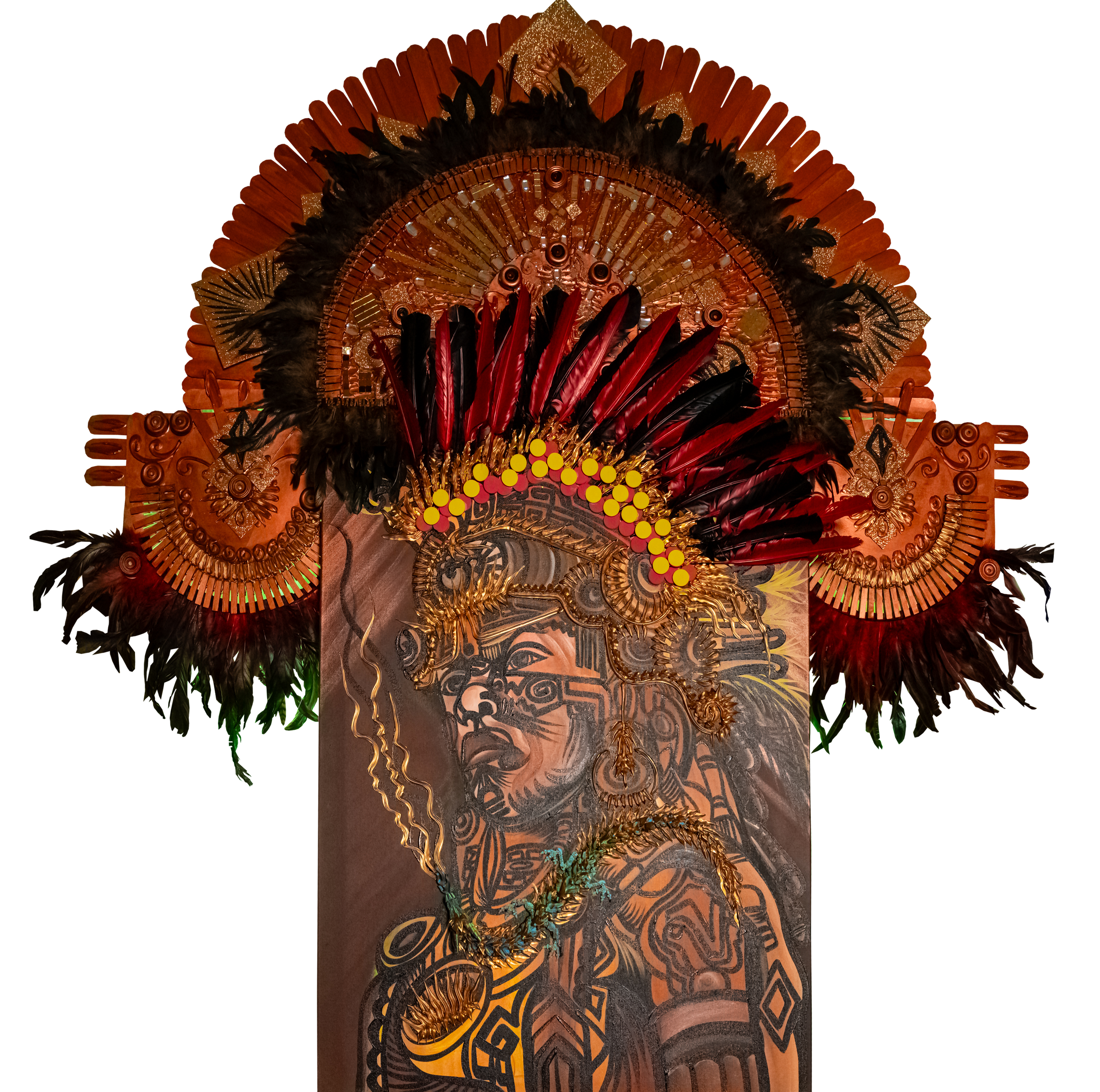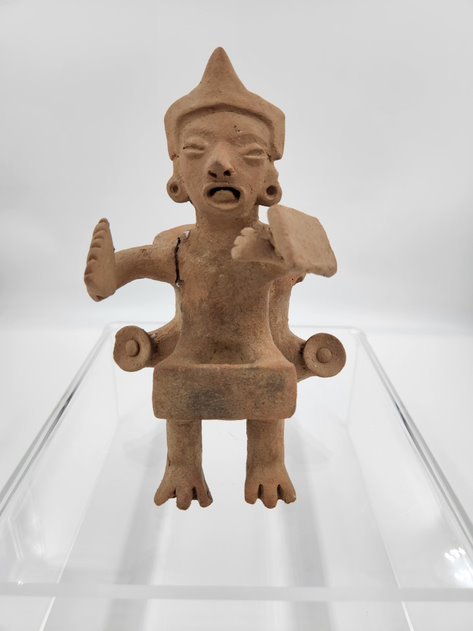‘Repatriation & Its Impact’ exhibition at the Parthenon, April 19-July 14, 2024
New exhibition grapples with historical looting of cultural artifacts, through pre-Columbian art from the Parthenon’s collection and new works by José Véra González
The Parthenon and Centennial Park Conservancy will present Repatriation & Its Impact, a timely exploration of the effects of cultural looting in the art and antiquities trade, through the lens of the Parthenon’s own collection of Pre-Columbian art and combined with new works by José Véra González, a Nashville-based Mexican artist.
The exhibit will be on display in the Parthenon, a Metro Parks museum, from April 19-July 14, with a free opening reception on Thursday, April 18, from 6 p.m. to 8 p.m.
“Repatriation is one of the most complex legal and ethical matters facing museums today, touching on racial equity, colonization, and even the very idea of what a museum is,” said Parthenon Director Lauren Bufferd. “Repatriation & Its Impact will feature case studies from around the world and explore a variety of ‘behind-the-scenes’ subjects, utilizing items from the Parthenon’s collection of Pre-Columbian artifacts. Our goal is for visitors to better understand changing collecting practices and invite them to think critically about how museums have historically acquired artifacts.”
Over the centuries, from the Colonial era to the Holocaust and beyond, art and antiquities were routinely stolen or looted, and ended up in prestigious museums and private collections. Curators and collectors around the world now wrestle with the problematic history of some pieces in their collections, including whether and how to display such works, and legal and ethical issues around retaining them or repatriating them to their countries of origin.
“This exhibition has given us the opportunity to work with award-winning local Mexican artist José Véra González and the Mexican community,” added Registrar and Exhibit Curator Bonnie Seymour. “This collaboration allows us to demonstrate the impact on a community that has been deeply affected by cultural looting and smuggling. My hope is to start a conversation about the illegal art trade, and about the steps that museums, communities, individuals, and countries are taking to stop these activities. We need to rethink what has been collected and why.”
The selected artifacts on exhibit will show a variety of different examples of Mesoamerican artistic culture, featuring effigies of people and animals, items for domestic use, hand tools, and musical instruments. An opening reception will be held on Thursday, April 18, at the Parthenon from 6 p.m. to 8 p.m. Admission to the reception is free with registration at the Parthenon’s website.
For more information on the exhibit, please visit www.nashvilleparthenon.com/events/repatriation-and-its-impact.
Exhibitions and educational programming at the Parthenon are underwritten by the Centennial Park Conservancy and its generous partners, including: Advance Financial Foundation, Amazon, Community Foundation of Middle Tennessee, Dettwiller Foundation, HCA Healthcare Foundation, Jackson National Life Insurance Company, Old Town Trolley, Pinnacle Financial Partners, Sandra Schatten Foundation, The Memorial Foundation, and the Tennessee Arts Commission. Subject matter of Parthenon exhibitions does not necessarily represent the opinion of partners or sponsors. For more information, please visit conservancyonline.com.
PARTHENON HOURS & ADMISSION
The Parthenon is open Monday through Thursday from 9 a.m. to 7 p.m., Friday and Saturday from 9 a.m. to 4:30 p.m., and Sunday from 12:30 to 4:30 p.m. Admission to the Parthenon is $10 for adults; $8 for seniors 62 and over; and $8 for children 4 to 17. Children under 4 are admitted free. Centennial Park Conservancy members receive free museum admission.
ABOUT CENTENNIAL PARK CONSERVANCY
Centennial Park Conservancy is a 501(c)(3) nonprofit organization with a mission to preserve, enhance, and share the Parthenon and Centennial Park so all future generations may benefit from these cultural and enriching landmarks. The organization works in partnership with Metro Parks to protect and revitalize the Park’s green space, underwrite the Parthenon’s exhibition and educational programs, and present accessible and inclusive community programming to sustain the Park’s vibrancy.
ABOUT THE PARTHENON
The Parthenon, owned and operated by the Metropolitan Government of Nashville and Davidson County’s Parks and Recreation Department, is the city of Nashville’s longest-lived art museum. Opened as a museum in 1931, its galleries are the home of the distinguished Cowan Collection of American art and feature several temporary exhibitions per year. The galleries are housed on the lower level of the Parthenon, the world’s only full-scale replica of the fifth-century BCE temple in Athens, Greece. Beloved symbol of civic pride to Nashvillians since its original manifestation as the art building for the Tennessee Centennial Exposition in 1897, it welcomes hundreds of thousands of Nashvillians and visitors to the city per year.
ABOUT METRO PARKS AND RECREATION
The Parks and Recreation Department offers a variety of facilities and programs throughout Davidson County. Currently, Metro Parks oversees nearly 16,000 acres of open space, including 178 parks and 85 miles of greenways. It is the department’s mission to sustainably and equitably provide everyone in Nashville with an inviting network of parks and greenways that offer health, wellness and quality of life through recreation, conservation and community.
The Metro Board of Parks and Recreation does not discriminate on the basis of age, race, sex, color, national origin, or disability in admission, access to, or operations of its programs, services, or activities. For TTY (relay service), call 1-800-849-0299. For questions, concerns, or requests regarding the American Disabilities Act call 862-8400.




